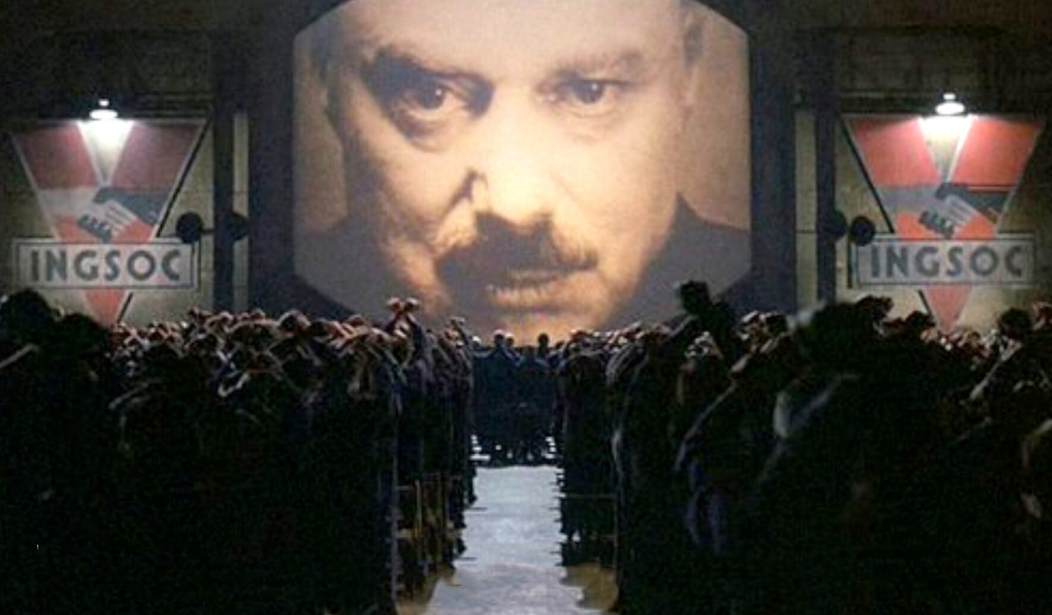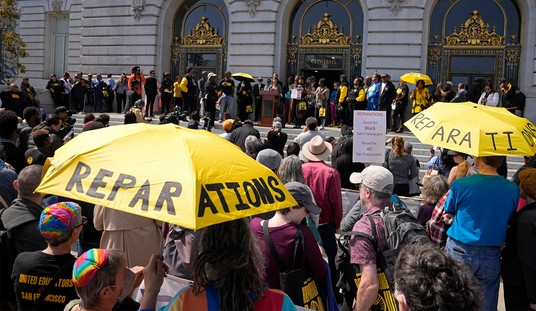Back in July, in this space, I warned about the dangers of the emerging tech monopolies, principally the weaponizing of Amazon via its ownership of the Washington Post.
In the background, but very much part of the conversation, is Amazon’s engorgement on the The Washington Post company, a once-honored (Watergate!) news organization that Amazon boss Jeff Bezos essentially bought for parts — the main part being the still-influential newspaper in the Imperial City of Washington, D.C. This isn’t so much of a financial investment as a form of protection money — although Bezos had the chutzpah recently to whine about the deleterious effect of Google and Facebook on print’s advertising base, and to make a pitch to the U.S. government for anti-trust protection.
Needless to say, a lot of readers begged to differ, citing the big, big savings and ease of shopping Amazon provides. At the same time, however, Amazon is keeping tabs on you, monitoring your purchases, pushing other products on you and, in the form of the hideous Alexa, listening in on you while you sleep. Throw in the electronic snooping of Facebook, Google and your iPhone, and we’re heading for an Orwellian nightmare the shape of which is just now becoming apparent, even on the Left:
SILICON VALLEY’S TAX-AVOIDING, JOB-KILLING, SOUL-SUCKING MACHINE
Four companies dominate our daily lives unlike any other in human history: Amazon, Apple, Facebook, and Google. We love our nifty phones and just-a-click-away services, but these behemoths enjoy unfettered economic domination and hoard riches on a scale not seen since the monopolies of the gilded age. The only logical conclusion? We must bust up big tech.
The sum of two decades of experience with, and study of, these companies leads me to a singular conclusion: It’s time to break up big tech.
Over the past decade, Amazon, Apple, Facebook, and Google—or, as I call them, “the Four”—have aggregated more economic value and influence than nearly any other commercial entity in history. Together, they have a market capitalization of $2.8 trillion (the GDP of France), a staggering 24 percent share of the S&P 500 Top 50, close to the value of every stock traded on the Nasdaq in 2001.
How big are they? Consider that Amazon, with a market cap of $591 billion, is worth more to the stock market than Walmart, Costco, T. J. Maxx, Target, Ross, Best Buy, Ulta, Kohl’s, Nordstrom, Macy’s, Bed Bath & Beyond, Saks/Lord & Taylor, Dillard’s, JCPenney, and Sears combined.
Meanwhile, Facebook and Google (now known as Alphabet) are together worth $1.3 trillion. You could merge the world’s top five advertising agencies (WPP, Omnicom, Publicis, IPG, and Dentsu) with five major media companies (Disney, Time Warner, 21st Century Fox, CBS, and Viacom) and still need to add five major communications companies (AT&T, Verizon, Comcast, Charter, and Dish) to get only 90 percent of what Google and Facebook are worth together.
And what of Apple? With a market cap of nearly $900 billion, Apple is the most valuable public company. Even more remarkable is that the company registers profit margins of 32 percent, closer to luxury brands Hermès (35 percent) and Ferrari (29 percent) than peers in electronics. In 2016, Apple brought in $46 billion in profits, a haul larger than that of any other American company, including JPMorgan Chase, Johnson & Johnson, and Wells Fargo. What’s more, Apple’s profits were greater than the revenues of either Coca- Cola or Facebook. This quarter, it will clock nearly twice the profits that Amazon has produced in its history.
These are staggering numbers, as well as a great example of what free geniuses can achieve under capitalism. It is impossible to imagine any of the Big Four being created by a socialist five-year plan, or an academic committee on committees. Still…
Monopolies themselves aren’t always illegal, or even undesirable. Natural monopolies exist where it makes sense to have one firm achieve the requisite scale to invest and offer services at a reasonable price. But the tradeoff is heavy regulation. Florida Power & Light serves ten million people; its parent company, NextEra Energy, has a market cap of $72 billion. However, pricing and service standards are regulated by people who are fiduciaries for the public.
The Four, by contrast, have managed to preserve their monopoly-like powers without heavy regulation. I describe their power as “monopoly-like,” since, with the possible exception of Apple, they have not used their power to do the one thing that most economists would describe as the whole point of assembling a monopoly, which is to raise prices for consumers.
Nevertheless, the Four’s exploitation of our knee-jerk antipathy to big government has been so effective that it’s led most of us to forget that competition—no less than private property, wage labor, voluntary exchange, and a price system—is one of the indispensable cylinders of the capitalist engine. Their massive size and unchecked power have throttled competitive markets and kept the economy from doing its job—namely, to promote a vibrant middle class.
As I noted in my piece from last summer, Big Tech has effectively ripped the heart out of the journalism, publishing, music, and entertainment industries but, even worse, it’s demolished the ranks of both corporate middle-management and entry-level service jobs, and crushed commercial real estate and retail shopping malls, all for the enrichment of a very few. It’s even eliminating supermarket checkout cashiers. So don’t give me the “creative destruction” argument here –do we really want to turn into a Latin American country of caudillos and peasantry? A nation ruled by geeks and government bureaucrats (the only middle-management careers left, apparently)? And you wonder why you have to work three jobs to be able to afford that Prime membership and the latest $800 iPhone.
How do they do it? It’s useful here to remember how Microsoft killed Netscape in the 1990s. The process starts innocently enough, as a firm builds an outstanding product (Windows) that becomes a portal to an entire sector—what we’d now call a platform. To sustain its growth, the company points the portal at its own products (Internet Explorer) and bullies its partners (Dell) to shut out the competition. Even though Netscape had the more popular browser, with over 90 percent market share, it couldn’t compete with Microsoft’s implicit subsidies for Internet Explorer.
It’s happening everywhere across the Four, whether it’s the slow takeover of the entire first page of search results that Google can better monetize, substandard products on your iPhone’s home screen (like Apple Music), coordinating all assets of the firm (Facebook) to arrest and destroy a threat (Snap), or information-age steel dumping via fulfillment build-out and predatory pricing no other firm can access the capital to match (Amazon).
The thing to remember is that, to Big Tech, you’re not the customer, you’re the product they’re selling to others: you, your family, your photos, your travel habits, your spending patterns, your email addresses and, when hacked, your personal banking and other financial details. They’re tracking your movements — or, even better, getting you to track yourselves for them, whether it’s “checking in” on Facebook or leaving your cell phone switched on while you travel (and who doesn’t?). The amount of money they generate, and the volume of content they accumulate, most of it provided voluntarily by you, for free, is stupefying.
As author Scott Galloway illustrates in this long but compelling must-read, the tech giants can affect markets simply by entering them. Further, the amount of money they pay in taxes makes them critical to the functioning of the federal government — which means not that they’re getting fleeced, but that they will soon wield a disproportionate influence on the conduct of public policy.
In the late nineteenth century, the term trust came into use as a way to describe big businesses that controlled the majority of a particular market. Teddy Roosevelt gained a reputation as the original “trust buster” by breaking up the beef and railroad trusts, and filing forty more antitrust suits during his presidency. Fast-forward a hundred years, to 2016, and we find candidate Trump announcing that a Trump administration would not approve the AT&T–Time Warner merger “because it’s too much concentration of power in the hands of too few.” A year later, his Justice Department sued to block it.
Perhaps Trump is right that the merger of AT&T and Time Warner is unreasonable, but if so, then we should have broken up the Four ten years ago. Each of the Four, after all, wields a harmful monopolistic power that leverages market dominance to restrain trade. But where is the Department of Justice? Where are the furious Trump tweets? Convinced that the guys on the other side of the door are Christlike innovators, come to save humanity with technology, we’ve allowed our government to fall asleep at the wheel.
Maybe it’s time for all of us to wake up, put aside the reflexively partisan, absolutist stances regarding our economic and social systems, and ask ourselves whether this is the future we really want.
Why should we break up big tech? Not because the Four are evil and we’re good. It’s because we understand that the only way to ensure competition is to sometimes cut the tops off trees, just as we did with railroads and Ma Bell. This isn’t an indictment of the Four, or retribution, but recognition that a key part of a healthy economic cycle is pruning firms when they become invasive, cause premature death, and won’t let other firms emerge. The breakup of big tech should and will happen, because we’re capitalists. It’s time.
Here endeth the lesson.
Follow me on Twitter @dkahanerules









Join the conversation as a VIP Member